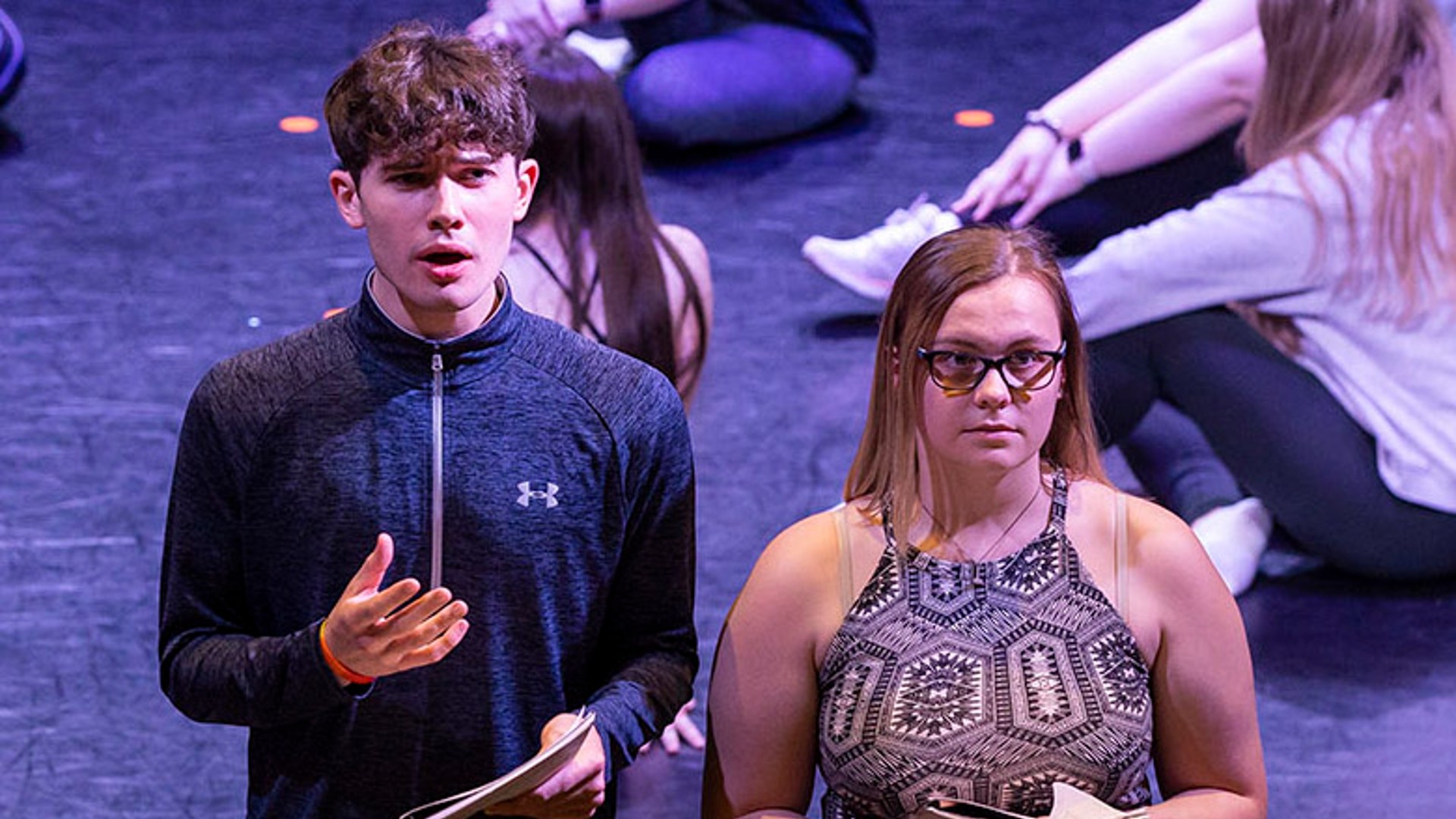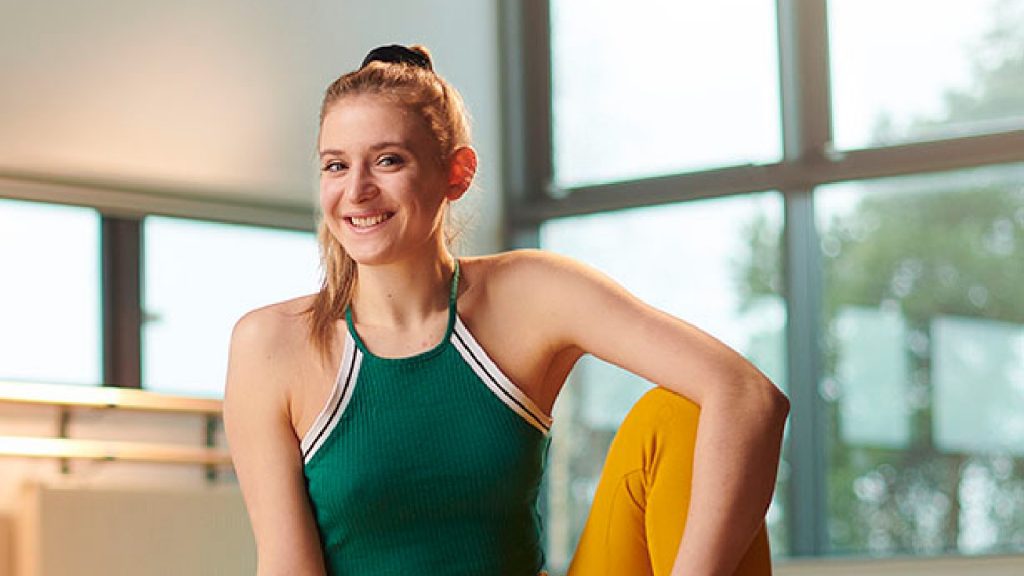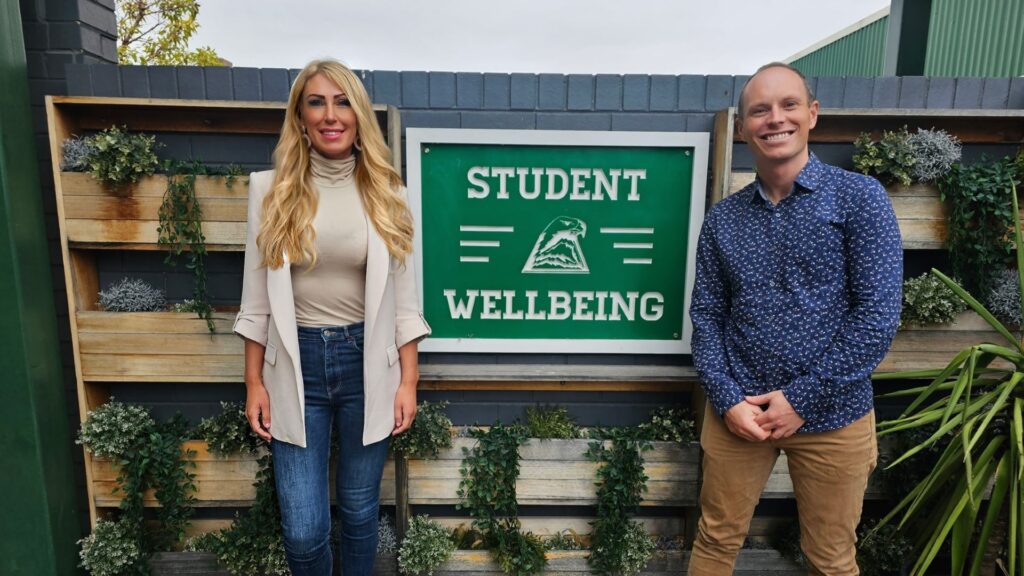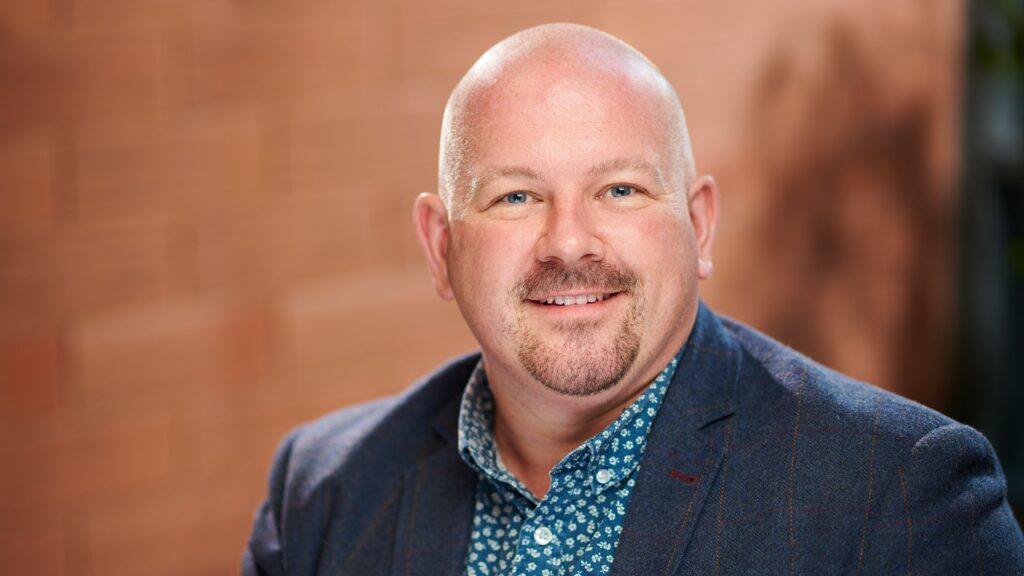
Nick Sanders has a tip for auditioning students: don’t try too hard. That may sound strange, but as a director of musicals, as well as a Senior Lecturer in musical theatre at Edge Hill University, he knows what he’s talking about. He believes too many talented performers fail at the first hurdle by trying to impress with something difficult. Focus on performing something you know, and can do well.
“Lecturers are looking to see your potential, rather than how good you are on your audition day. It’s more about what you can get out of the course, rather than how good you are on that day.”
Chelsea Bell, Dance student
“We look for two things: aptitude and attitude. We want to know: what are your skills, what are your interests, and what do you know already about the subject area. My advice would be to be engaged and present in the audition – listen, respond, and show us that you want to be here. Don’t be nervous, don’t worry if something doesn’t go perfectly first time, show us that you have some resilience and a willingness to learn.”
James Hewison, senior lecturer in Dance
Rita Moreno, who starred in the 1961 screen version of West Side Story, would agree, claiming that in dance auditions “you learn the steps right now.” And Madonna, who began life as a dancer, “started going to auditions for musical theatre, which forced [her] to sing.”
Auditioning is not only for those looking to break into the industry. It’s an integral part of the industry, and audition nerves and doubts can plague the most celestial performers, because even they don’t always get the part.
Trawl the internet, and there’s a queue of established performers waiting to tell you how unsettling they find the process. George Clooney “had to stop going to auditions thinking, ‘Oh, I hope they like me.’ [Instead he] had to go in thinking [he] was the answer to their problem.”
But for Al Pacino auditions were an opportunity, “another chance to get up there and try out what [he had] learned and see how it worked with an audience, because where are you gonna get an audience?”

Maria Mortimer graduated in 2020, so has joined Al Pacino and George Clooney in the professional ranks, where auditioning is part of daily working life. After three years at Edge Hill, what would she say to anyone auditioning, for a course and beyond?
“Be yourself and enjoy dancing in the space. For anyone attending a professional job you will hear ‘no’ more often than ‘yes’, but it’s all part of a learning curve and each one will shape the way your career will go. It’s also a lot about who you know, so network as much as you can and always try to stay positive!”
Maria Mortimer, 2020 Dance graduate

“The Rose Theatre was packed and I was just thinking, ‘wow, this must really be a great university for all these people to come and audition here.’ We did the workshop, which had a bit of dance and physical theatre, and I had such a great time. I’m still friends with people I met on the day.”
Josias Bertrand, Dance and drama alumnus.
“We got here and I wanted to cry, but the first person I spoke to was so friendly, and calmed me down. I knew then that this was the place I wanted to be, because of the campus, because of the course, because of the people I met just on the first day. Now I know who I am and where I want to go professionally.”
Cody Austin, Dance and drama alumnus
So how best to prepare for your audition?
Senior Lecturer in Drama and Musical Theatre Emma Heron – pictured here (centre) with student drama group Mrs Pankhurst’s Players – has a formula for conquering audition anxiety:

- The people watching your audition want you to be good, so imagine a live audience waiting to be entertained. Remember, you love to perform.
- Be confident (even if your insides have turned to jelly) – creating a good positive impression will always work in your favour.
- Do something you’re familiar with – and practice, practice, practice. That way you can focus on other aspects of the performance, such as beats, character, and feelings.
- Relaxation exercises can be useful – techniques such as stretching, deep breathing, meditation or visualisation can help you control your nerves.
At auditions, we’ll be asking you to show off your skills and style, this might be: dance techniques, monologue delivery, short scenes from a play of your choice, a favourite song from a musical – that kind of thing. There will also be a performance analysis element, asking you to consider some of the more fundamental questions that swirl around and beneath dance, drama and musical theatre, such as what is theatre for? Or, how do plays, musicals or dance reflect contemporary society?
The anxious thrill of a live audition is a vital part of performance art. It’s also our opportunity to meet you.

Show us what you can do – and don’t forget to enjoy it.
Discover dance, drama and musical theatre at Edge Hill University
July 3, 2022


